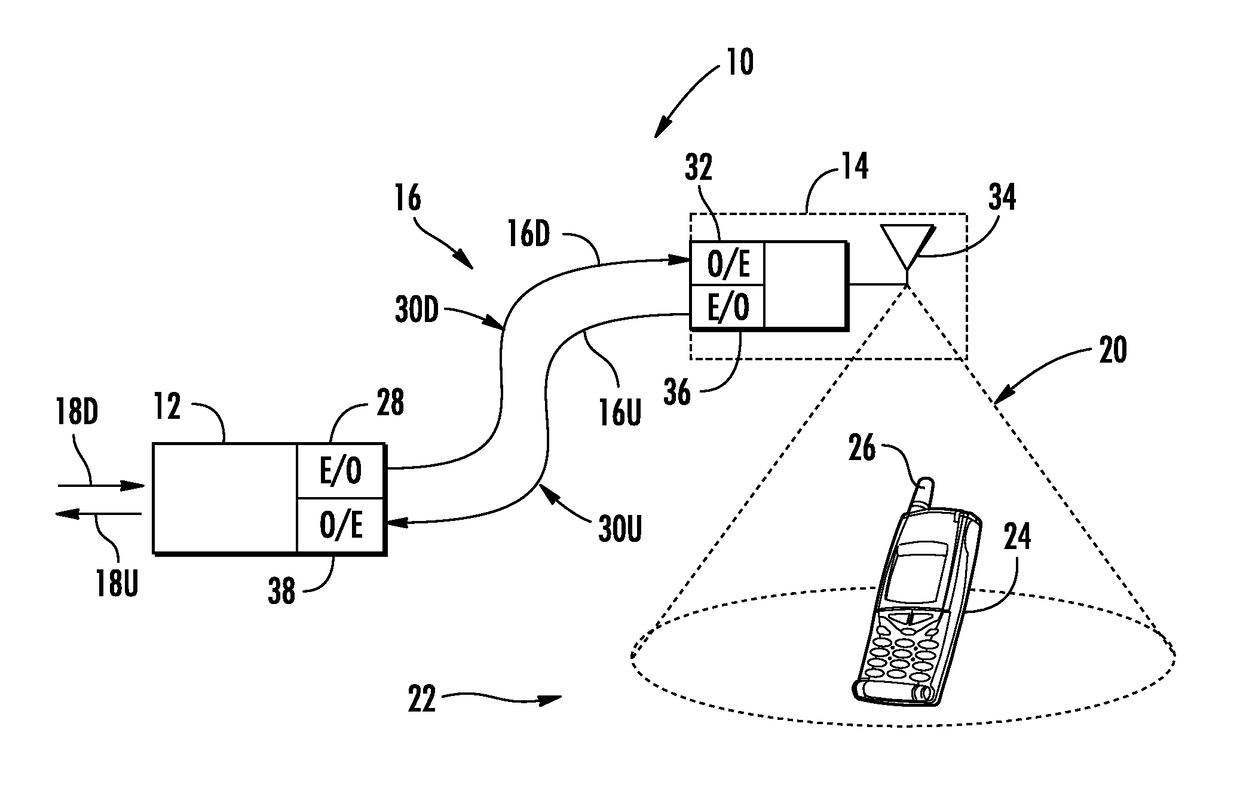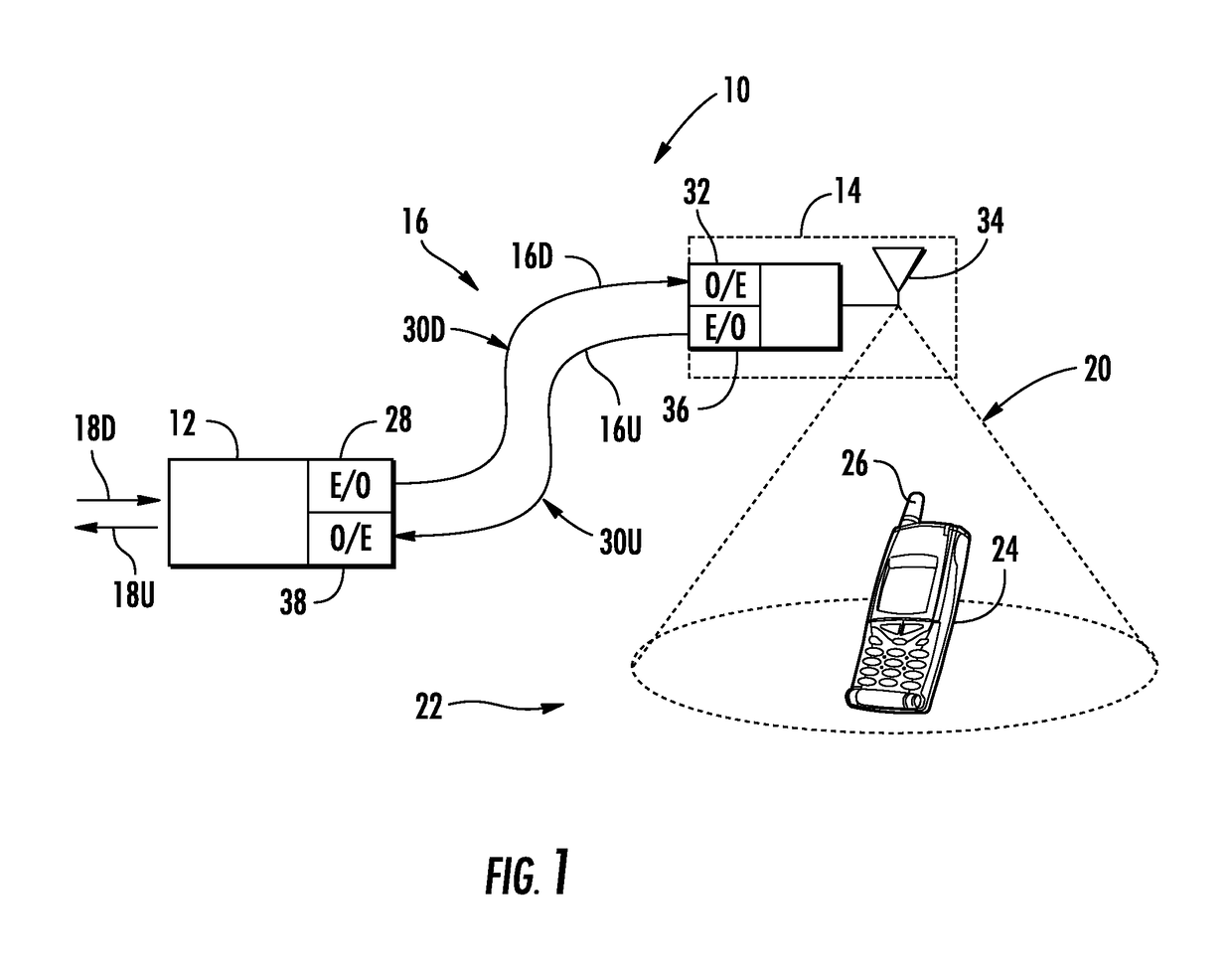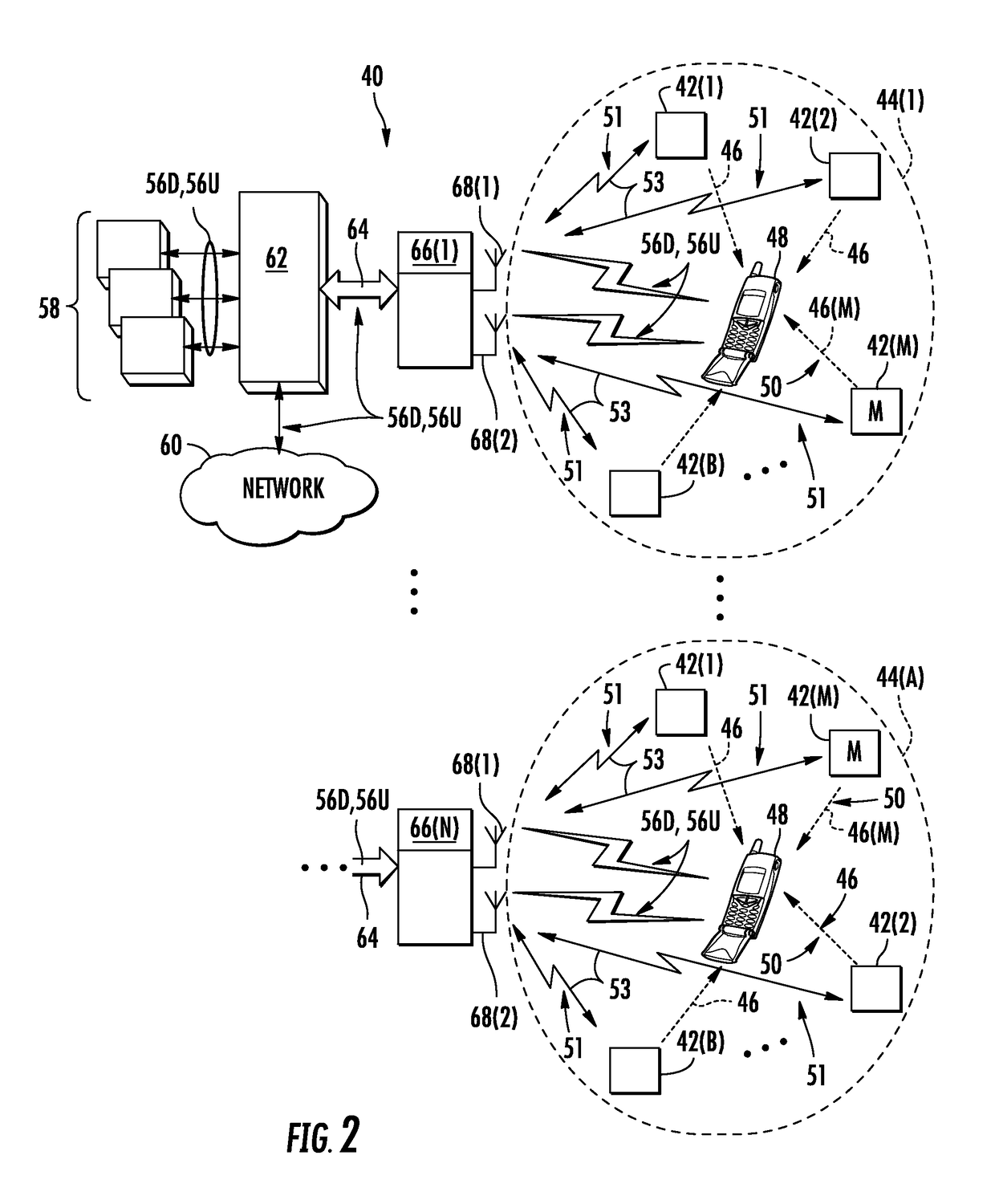Ultrasound-based localization of client devices with inertial navigation supplement in distributed communication systems and related devices and methods
a distributed communication system and client device technology, applied in the field of distributed communication systems, can solve the problems of inability to provide or determine the location of client devices using global positioning services, other services may be negatively affected or not possible, and gps signals are usually too weak to be received by client devices
- Summary
- Abstract
- Description
- Claims
- Application Information
AI Technical Summary
Benefits of technology
Problems solved by technology
Method used
Image
Examples
Embodiment Construction
[0013]Embodiments disclosed herein include ultrasound-based localization of client devices in distributed communication systems. Related devices, systems, and methods are also disclosed. In embodiments disclosed herein, a plurality of spatially located ultrasound beacons are provided in known locations within the distributed communication systems. Each of the spatially located ultrasound beacons is configured to emit ultrasound pulses that can be received by client devices in ultrasound communication range of the ultrasound beacons. The client devices are configured to analyze the received ultrasound pulses from the plurality of ultrasound beacons to determine their time-difference of arrivals at the client device. As a result, the client devices can determine their relative distance to ultrasound beacons in a distributed communication system. In certain embodiments, a master ultrasound beacon is provided that encodes location information in a second channel with emitted ultrasound ...
PUM
 Login to View More
Login to View More Abstract
Description
Claims
Application Information
 Login to View More
Login to View More - R&D
- Intellectual Property
- Life Sciences
- Materials
- Tech Scout
- Unparalleled Data Quality
- Higher Quality Content
- 60% Fewer Hallucinations
Browse by: Latest US Patents, China's latest patents, Technical Efficacy Thesaurus, Application Domain, Technology Topic, Popular Technical Reports.
© 2025 PatSnap. All rights reserved.Legal|Privacy policy|Modern Slavery Act Transparency Statement|Sitemap|About US| Contact US: help@patsnap.com



